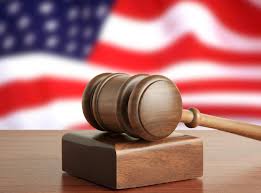U.S. District Court Southern District of New York gave Nigerian businessman Louis Emovbira Williams the go-ahead to withdraw $21 million from Nigeria’s bank account with JP Morgan, used to stash funds from crude oil sales to foreign entities.
Justice Liman Lewis, in August, denied Nigeria’s motion to dismiss the complaint filed by Mr Williams, who was scammed over a food importation business deal that cost him millions of dollars in 1986.
Not only was Mr Williams swindled of $6.5 million, he said he was also tortured by the SSS and tried for “economic sabotage” after he returned to Nigeria from the UK to retrieve the funds. He was sentenced to 10 years imprisonment in 1986 but left prison in 1989, having languished in jail for three years.
He got a presidential pardon from the then military president, Ibrahim Babangida in August 1993 and a “Fidelity Guarantee and Abiding Memorandum of Understanding of Assurance” for him to be paid approximately $6.5 million at 17 per cent compound interest on a rollover basis since 1986 and N5 million including a 25 per cent compound interest.
- Flood cuts off road linking Maiduguri to neighbouring countries
- APC’s Okpebholo wins Edo gov’ship election
But the payment never came.
CBN’s unwillingness to pay the lump sum left the matter unresolved for decades until Nigeria returned to civilian rule and prompted Mr Williams to file a suit at the UK court, where Nigeria was ordered to refund the businessman with compensation.
In 2018, Justice Mary Clare Moulder of the Queen’s Bench Division of the High Court of Justice in UK okayed the seizure of $21,231,960.74 and £19,763.130 from the Central Bank of Nigeria’s account domiciled in JP Morgan.
The defendants include the federal government, the Attorney General of the Federation, CBN, JP Morgan & Co. and other parties who have yet to be named in the suit.
Having obtained a court order authorising him to seize millions of dollars from Nigeria’s account with JP Morgan, the businessman argued his entitlement to the funds before the Supreme Court of the State of New York.
But CBN requested that the suit be transferred from the Supreme Court to a lower court where Nigeria can plead sovereignty.
There, Nigeria argued it had sovereign immunity, which made it impervious to the UK court order in that a sovereign state cannot subject itself to the orders of other nations.
But Mr Liman of the U.S. District Court of New York court dismissed Nigeria’s argument and held that Nigeria had already waived its sovereign immunity per the terms of the Fidelity Guarantee issued to Mr Williams in 1993.
“Therefore for the avoidance of doubt, both the Nigerian State and CBN must be deemed to have waived any immunity from levying of execution on amount kept in the name of CBN or State of Nigeria or any institution of Nigeria (save diplomatic) to the extent to which any amount in [paragraph] (14) above remains unpaid,” stated the 1993 Fidelity Guarantee that the Nigerian government issued to Mr Williams.
“Neither the Nigerian State nor the CBN shall raise or invoke any defences so as to deprive Dr Williams of his monies in [paragraph] (14) above or make it financially onerous and burdensome such as requiring Dr Williams to suffer,” the Guarantee added.
Mr Liman determined that Nigeria could not turn around to contend for sovereign immunity, which had already been waived in the Guarantee.
“Accordingly, the Fidelity Guarantee reflects a waiver of sovereign immunity for any proceeding in any court to recognise and enforce a judgement pertaining to plaintiff’s seized funds,” the U.S. judge stated on August 12.
But the Nigerian government, reluctant to part with its cash asset, already sought to appeal the ruling at the Second Circuit in New York as records have been transmitted to the appellate court where the arguments will again be re-examined and redetermined.
Nigeria has already lost on a similar ground from another court of appeals in the U.S., the one in the District of Columbia in Washington D.C., which ruled in favour of Zhongshan Chinese investors to seize Nigerian assets abroad over a botched free trade zone deal.
The appellate decision in the Chinese case in the District of Columbia Circuit is not binding on the courts under the Second Circuit, where New York falls.
The case adds to the mounting list of litigations that sully Nigeria’s reputation among its international counterparts as courts in France, UK and Canada have similarly given orders green lighting the confiscation of Nigerian assets abroad.
Mr Williams said the funds, when recovered, would be used to improve children’s health and education in Nigeria. (Peoplesgazette)

 Join Daily Trust WhatsApp Community For Quick Access To News and Happenings Around You.
Join Daily Trust WhatsApp Community For Quick Access To News and Happenings Around You.


